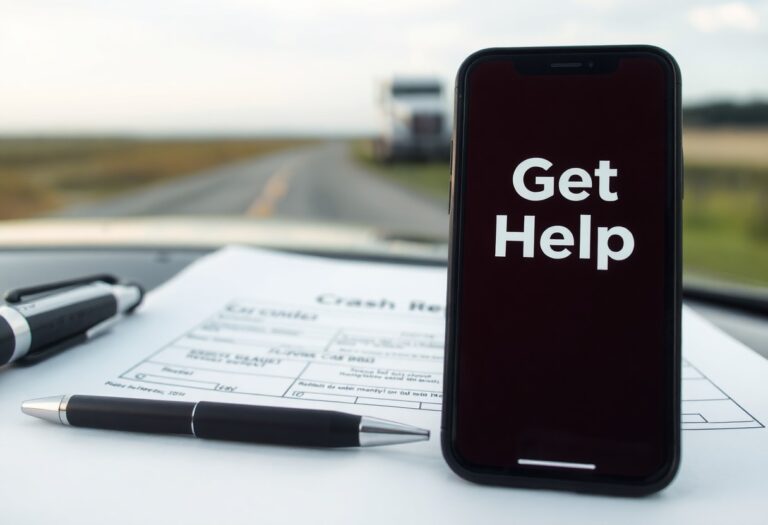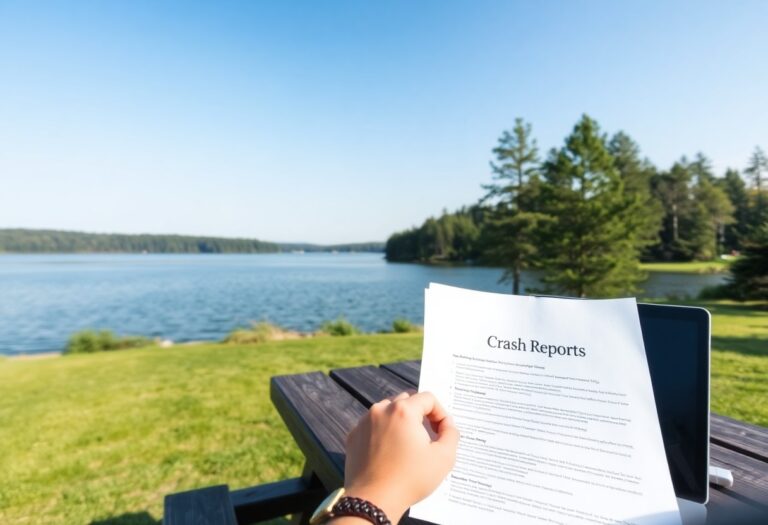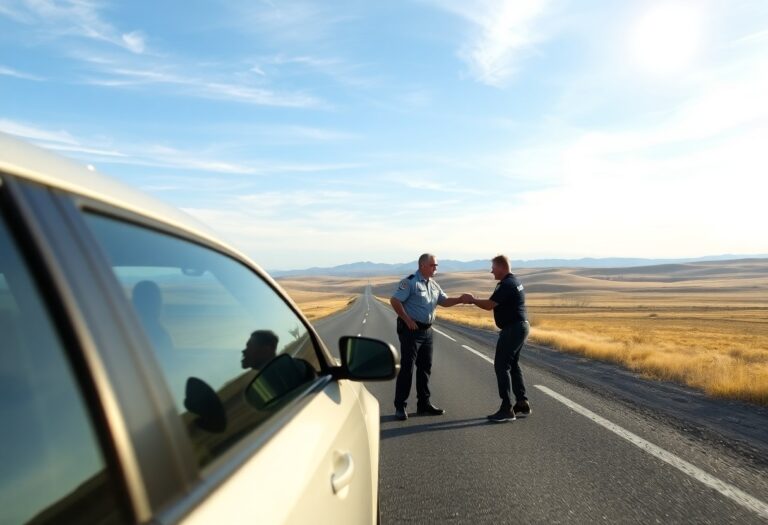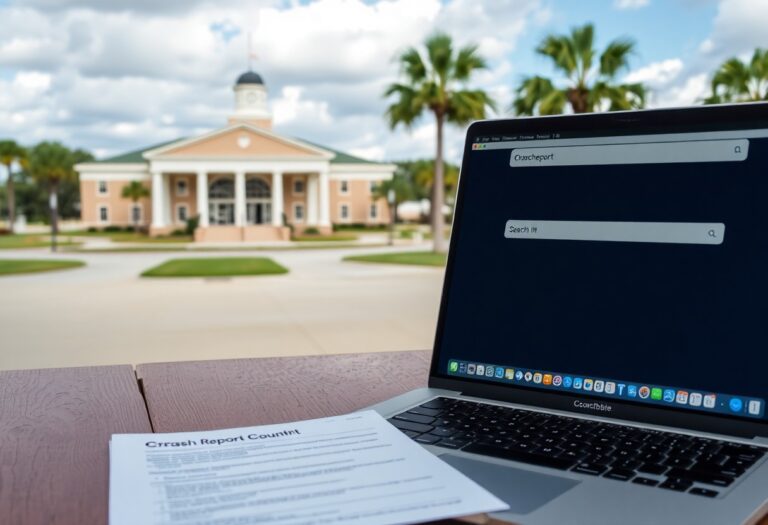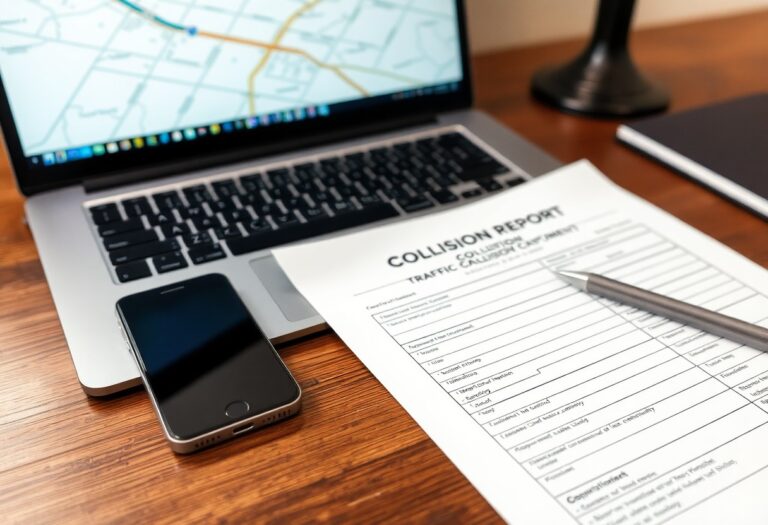Onslow County offers imperative resources for obtaining your car accident report efficiently. When you’re involved in an accident, having access to your report can be vital for insurance claims, legal matters, and personal record-keeping. This blog post will guide you through the specific steps to retrieve your report, including where to go and what information you’ll need to provide. Ensuring you have the right documentation is not just important for your peace of mind but can also play a significant role in your case.
Navigating the Maze: Where to Request Your Car Accident Report
Obtaining your car accident report in Onslow County can feel overwhelming, but knowing the right channels simplifies the process significantly. Various agencies and resources are available to assist you in acquiring the necessary documentation for legal or insurance purposes, ensuring you’re well-equipped to handle the aftermath of an accident.
Local Law Enforcement Agencies: First Points of Contact
Your first stop should be the local law enforcement agencies involved in the accident. The Onslow County Sheriff’s Office and the Jacksonville Police Department are typically responsible for the reports. You can visit them in person or call to inquire about the process, which may vary depending on the specific agency and the nature of the incident.
Online Access: Using State Resources to Streamline Your Search
In North Carolina, you can also access accident reports online through the North Carolina Department of Transportation’s website. This state resource reduces the need for in-person visits and expedites the retrieval of your report. It’s particularly useful if you prefer managing things from home, as it offers detailed instructions on downloading or ordering your report.
The North Carolina DMV provides an online portal for requesting accident reports, which you can complete in just a few minutes. By entering basic details, such as the date of the accident and the involved parties’ information, you’ll have instant access to your report without needing to navigate traffic to law enforcement offices. This efficiency not only saves time but also minimizes potential stress during an already challenging time following an accident.
Understanding Essential Details: What’s Included in Your Accident Report
Your accident report contains key details that help create a comprehensive picture of the incident. This document outlines the facts surrounding the accident, including the time and location, the names of the involved parties, and vehicle information. It also includes witness statements, the officer’s observations, and any citations issued. Understanding these elements can significantly assist you in navigating the aftermath of the accident and pursuing any claims or legal actions.
Key Components: From Basic Information to Critical Findings
At its core, your accident report should encompass basic information like the date, time, and location of the accident, as well as the names and contact details of those involved. Additionally, the report outlines specifics such as vehicle descriptions, insurance details, road conditions, and any traffic signals present. Any significant findings, such as probable causes of the accident or citations issued to drivers, are also included, offering critical insights for both insurance claims and legal proceedings.
Common Misinterpretations: Clarifying Frequently Confused Terms
Legal and insurance terminology in your accident report can often cause confusion. For example, terms like “fault” and “negligence” carry specific implications that differ from general usage. “Fault” vitally determines who is considered responsible for the accident, while “negligence” refers to failure to act with reasonable care, which can influence liability. Misunderstanding these terms may lead to misinformed decisions about your case, urging you to seek clarification and ensure you’re interpreting the report accurately.
In your accident report, “fault” isn’t just about who caused the accident—it also impacts how insurance claims are handled. “Negligence,” on the other hand, has a legal basis that can change the outcome if pursued in court. For instance, if you are found to be partially at fault, this might lead to a reduced compensation amount under North Carolina’s shared fault laws. Being clear about these terms and their implications ensures that you can effectively advocate for your rights following the accident.
The Power of Your Report: How to Use It Effectively
Your car accident report is more than just a document; it’s a powerful tool that can guide you through the aftermath of an incident. By understanding how to leverage its information, you can make informed decisions regarding insurance claims, legal actions, and personal accountability. Engaging with the details can also help you identify what led to the accident, allowing you to adjust your driving habits for enhanced road safety in the future.
Claims and Disputes: Leveraging Reports for Insurance and Legal Matters
Utilizing your car accident report is crucial for navigating insurance claims or disputes. The report provides vital details, such as the accident’s location, contributing factors, and involved parties, serving as a solid foundation for your claims process. Insurers typically rely on this official record to determine liability, which can influence the compensation you receive. In legal situations, having an accurate report can strengthen your case when disputing claims or proving negligence.
Enhancing Personal Awareness: Learning from Past Incidents
Analyzing your car accident report allows you to gain insight into your driving patterns and vulnerabilities. Understanding the circumstances that led to the accident—whether it was distracted driving, speeding, or another factor—can enable you to enhance your awareness behind the wheel. By reviewing the details, you can identify risky behaviors and make necessary adjustments to promote safer driving practices in the future.
In many cases, drivers realize that specific patterns led to their accidents. For instance, if a report reveals frequent incidents at particular intersections or during certain weather conditions, you can take proactive measures, like avoiding those routes or adjusting your driving habits during rain. These insights not only improve your own safety but also contribute to a broader culture of accountability among road users. Gaining this awareness is not just about avoiding future accidents; it’s about fostering a responsible driving mindset that prioritizes the well-being of all.
Common Pitfalls: What to Avoid When Requesting Your Report
Successfully obtaining your car accident report hinges on avoiding common mistakes that can delay or even derail your request. Inaccuracies in the information you provide, such as the wrong date, driver names, or vehicle identification numbers, can lead to unnecessary complications. Always double-check your details and follow the correct protocols outlined by local authorities to ensure a smooth process. A little attention to detail can make a significant difference in securing the report you need.
Typical Errors in the Application Process
Filling out the application for your report inaccurately is a common error that can cause setbacks. Submitting incomplete information or using outdated forms often leads to unnecessary delays. Many people overlook specific required fields or provide erroneous incident details, which can slow the processing time significantly. Always verify you are using the latest version of the application form and provide comprehensive details to expedite the process.
The Importance of Timeliness: Why Waiting May Hurt Your Case
The longer you wait to request your accident report, the greater the potential for complications to arise in your case. When you delay, evidence can disappear and witness recollections may fade, weakening your position. Every day that passes without acquiring your report makes it more difficult to establish key facts and protect your rights. Your timeline for filing any insurance claims or personal injury lawsuits can also be impacted, limiting your options and potentially affecting the compensation you may receive.
Business records, accident reports, and witness statements are all more reliable when obtained promptly after an incident. For example, a study found that witness memory can degrade within days, making it harder to gather accurate testimony as time elapses. If your case goes to court, having the accident report and all associated documentation ready and time-stamped can bolster your credibility and strengthen your argument. Prioritizing the acquisition of your report ensures you are better prepared to navigate any potential legal challenges ahead.
Local Resources and Support: Where to Find Help
Finding local resources and support can greatly bolster your journey after a car accident. In Onslow County, a variety of organizations and services are at your fingertips, ready to assist you. Whether you need legal advice, emotional support, or practical assistance, reaching out to local networks can provide the guidance you need to navigate your next steps effectively.
Community Services: Connecting with Local Attorneys and Advocates
Onslow County is home to dedicated attorneys and advocacy groups that specialize in personal injury and accident cases. Connecting with these professionals can provide you with tailored legal advice to help you understand your rights and options. For instance, organizations like the Onslow County Bar Association can connect you with experienced attorneys who offer free initial consultations, empowering you to make informed decisions.
Online Support Groups: Fellow Accident Survivors and Their Insights
Participating in online support groups can offer you invaluable perspectives from those who have experienced similar challenges. Platforms such as Facebook or specialized forums allow you to share your story, gain insights, and find encouragement from fellow accident survivors. These communities foster a sense of belonging and can provide practical tips to cope with the aftermath of a car accident.
Online support groups often feature active discussions about recovery strategies, legal processes, and emotional health. The experiences shared by fellow survivors can paint a realistic picture of what to expect on your journey and prepare you for overcoming obstacles. Engaging with these communities may not only ease your loneliness but also arm you with insights that could be pivotal in your recovery process. Many members willingly share their stories, resources, and recommendations, making these platforms a treasure trove of information for anyone navigating the aftermath of a car accident.
Summing up
With this in mind, obtaining your car accident report in Onslow County, North Carolina, is a straightforward process. You can request your report online, by mail, or in person, ensuring you have all necessary information ready to expedite the procedure. Knowing how to navigate the local law enforcement or court systems will help you secure your report efficiently. By following the outlined steps, you can easily access the vital information you need regarding your incident, empowering you to proceed with any necessary claims or legal actions.







